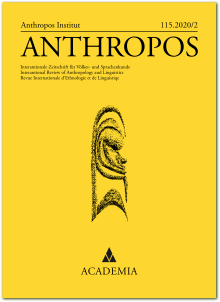Darius J. Piwowarczyk: Family Transformation in the Colonial Context of German Togo
Abstract
This article concerns administrative and cultural mechanisms that the colonial government and the Catholic Steyler missionaries (SVD) in German Togo were using in the process of transforming the traditional social fabric of local ethnic groups – the process that had also a significant impact on the institution of family by altering community-based African conceptions about the human being. Those administrative and cultural tools of social disciplining were supported by the contemporary ideological framework composed of Christian, positivist and nationalist components. The example of the family of Martin Aku – a Togolese intellectual and political activist – illustrates the effectiveness of that system. The phenomenon that contradicted the then mainstream ideology of white superiority was the growing number of individuals of mixed ancestry - the “unwanted fruit” of liaisons between European colonial agents and indigenous women.
[German Togo, colonial practical ideology, disciplining, habitus, culture change]
